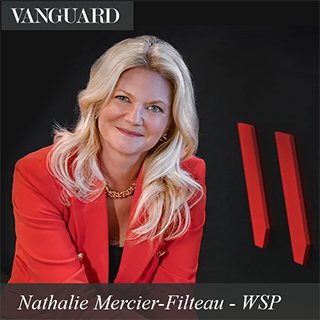
Environmental Liability
Print this page
OVERVIEW
The costs associated with the clean-up of an environmental spill are frequently immense. Therefore, it is of crucial importance to have representation in resultant lawsuits to limit the costs, share the exposure with other potentially responsible parties, and ultimately recoup the costs from third parties.
Our Environmental Liability Group understands these dynamics and is well-qualified to serve clients in the following areas:
- Insurance Coverage
- Remediation
- Defence, Recovery, and Subrogation
* Read feedback from a participant at our Environmental Law Education Seminar "Oil Leak Claims - Part 1: Remediation" held June 20, 2012 *
SERVICES
Our Lawyers provide:
1. Coverage
A primary concern of the company involved with the spill, as well as its insurer, is the extent to which a potential environmental liability is covered by insurance. Our lawyers regularly assess coverage entitlements and exposures, providing legal interpretations of such issues as:
- the definition of "pollutant";
- the applicability of the insurance policy's "pollution exclusion";
- the effect of a ministerial remediation orders; and
- policy provisions relating to on-site and off-site clean-up.
2. Remediation
The Environmental Liability Group has extensive experience with the legal aspects of site remediation activities, including:
- developing and implementing remediation programs for both onsite and offsite cleanup;
- negotiating acceptance of the remediation program with the Ministry of the Environment;
- negotiating settlements with injured third parties; and
- liaising with local authorities, the public, and the media.
We also provide loss avoidance advice on the development and implementation of an effective Proactive Environmental Risk Management Plan for use by clients before a spill occurs.
3. Defence, Recovery, and Subrogation
The Environmental Liability Group will ensure that our clients are vigorously defended against any environmental claims, while working to maximize the potential for subrogation and recovery from other liable parties. We guide our clients in:
- formulating effective litigation strategies from the first notification of the claim through to the trial and appeals;
- retaining appropriate experts to determine causation and the precise location of a spill as quickly as possible;
- determining potentially responsible parties, and pursuing them for contribution; and
- gathering and preserving scientific, oral, and documentary evidence from the earliest stages.
We have extensive trial and appeal experience in successfully defending clients against complicated and potentially devastating environmental claims. As part of this service, we work with environmental experts to determine the parties ultimately responsible for the spill, and we vigorously pursue these parties to recoup our clients'damages and expenses.
CHAIR(S)
MEMBER(S)
PUBLICATIONS
View All Vanguard recognizes Nathalie Mercier-Filteau - WSP
Vanguard recognizes Nathalie Mercier-Filteau - WSP
The legal WSP team at MB, led by Howard Borlack, proudly congratulates Nathalie Mercier-Filteau on her recognition as a leader.
 Causation And Standard Of Proof For A Hypothetical Pre-Trial Loss
Causation And Standard Of Proof For A Hypothetical Pre-Trial Loss
First Published in Advocates Quarterly. This paper addresses whether the same principles regarding the “real and substantial possibility” standard of proof apply to a hypothetical past loss claim as they do to a hypothetical future loss claim, and the interplay between the two standards of proof applicable to hypothetical claims: balance of probabilities for the “but for” causation test, and “real and substantial possibility” for damages.
 Improperly sued? Can you recover costs if the action is dismissed? Rule 23.05
Improperly sued? Can you recover costs if the action is dismissed? Rule 23.05
In order to protect limitation periods, especially in cases where liability is yet to be determined, there is an obligation on counsel to identify, name, and pursue all parties who may be liable to the plaintiff(s). However, as the discovery process begins, parties often become aware that they have added in a party that will bear no liability to the plaintiff(s). Often, parties are able to consent to a dismissal or discontinuance without costs; however, there are cases in which defendant(s) will not go out without costs. In these cases, parties can move for a ruling under Rule 23.05...







